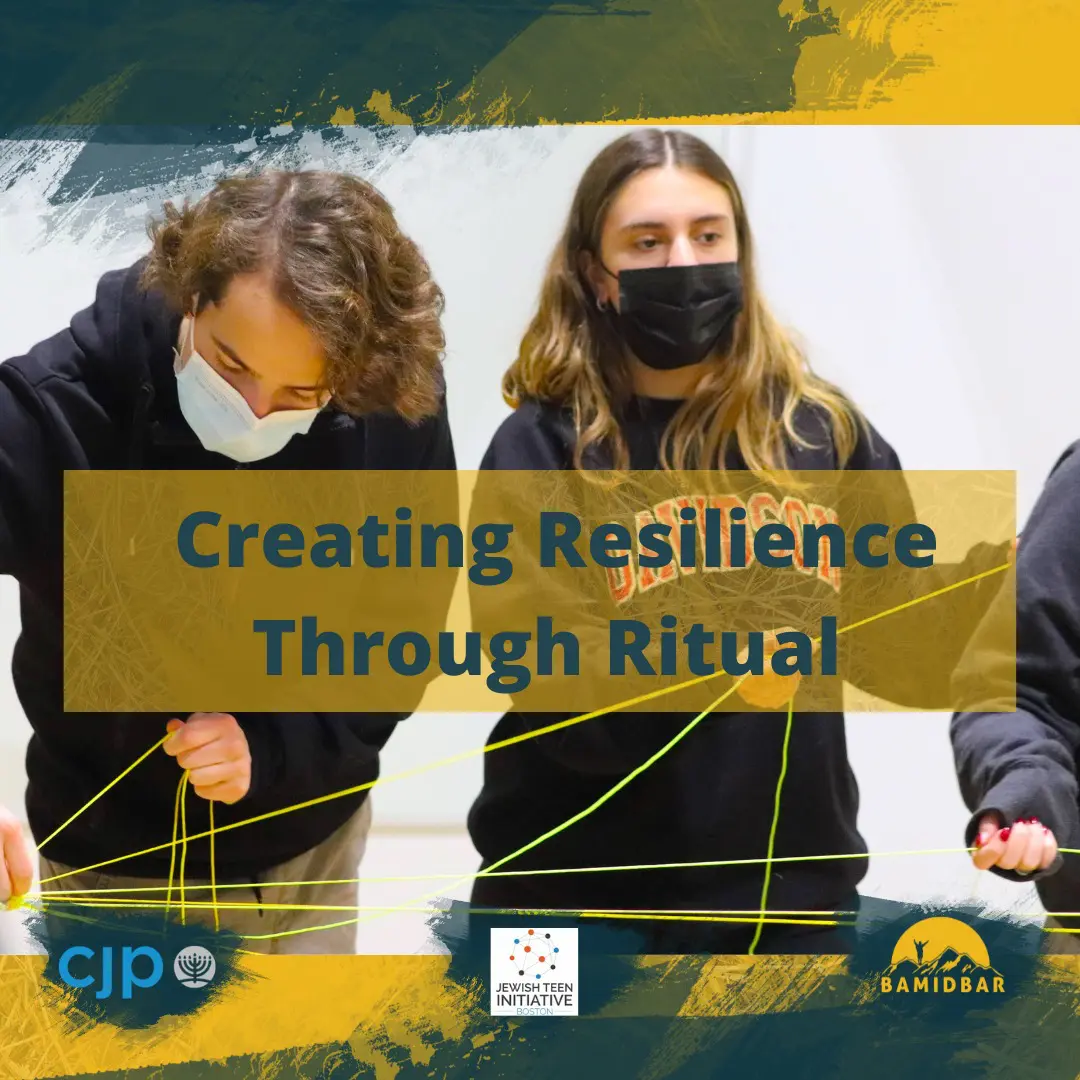In Fall 2021, the Jewish Teen Initiative (JTI) at Combined Jewish Philanthropies of Greater Boston and BaMidbar launched a nine-month Mental Health and Wellness Track of the JTI Peer Leadership Fellowship. The teen fellowship cohort focused on peer engagement through a mental health and wellness lens, culminating in community projects. Throughout Mental Health Awareness Month, stay tuned to BaMidbar and JTI as we share their projects related to mental health awareness and stigma reduction.
By Zoë Gray
Celebrating Shabbat can be great for your resilience
Resilience is defined as “the capacity to recover quickly from difficulties; toughness.” As humans, we’re always working through things, and must find resilience within ourselves to make it through the rough patches. Sometimes this is easier said than done.
I know when stress piles up, I don’t really believe I can do anything about it and the last thing I am thinking about is trying to recover from anything. However, researchers (Bruce Perry, Harvard Center for the Developing Eric Grietens) have discovered that there are ways that we can protect our bodies and brains from stress build-up which they call “toxic stress.” One group at Mount Sinai came up with something called the Resilience Prescription that they developed after interviewing Prisoners of War.
What these theories have in common is an important idea: you have to know that you are not doing well from a mental health perspective and then you have to actively/intentionally calm yourself down.
The first thing I do that helps me build resilience is talk to people I trust. When I feel anxious and stuck, friends and mentors help me feel less alone and more connected.
Another thing that I do, that aligns with the Resilience Prescription is exercise and moving around everyday. This seems to help with getting stress hormones out of my nervous system! And it’s fun. It also helps to go to the gym with friends, dance, do a class or just walk the dog.
I was surprised to learn that some of developing resilience happens by observing traditions from your faith. A simple at home ritual of celebrating Shabbat can be great for your resilience. According to the researchers Charney and Southwick, having these rituals helps to make meaning of difficult things and notice what we are grateful for. No matter what happens each week, my family figures out how to sit down for dinner, light candles and take a few minutes to check-in about what went wrong and what went right over the course of the week on Friday nights.
These things help me to feel more calm and connected. It can be hard for me to remember them while I’m feeling overwhelmed. If resilience is transforming stress, these practices can help you flourish in moments of difficulty.
Bio
Zoë Gray is a junior at Lexington High School. She is a competitive figure skater who also helps facilitate drug prevention trainings for younger students. Zoë is a member of Temple Shir Tikvah in Winchester and she loves dogs.
Citations
https://www.allencheng.com/resilience-book-summary-eric-greitens/

